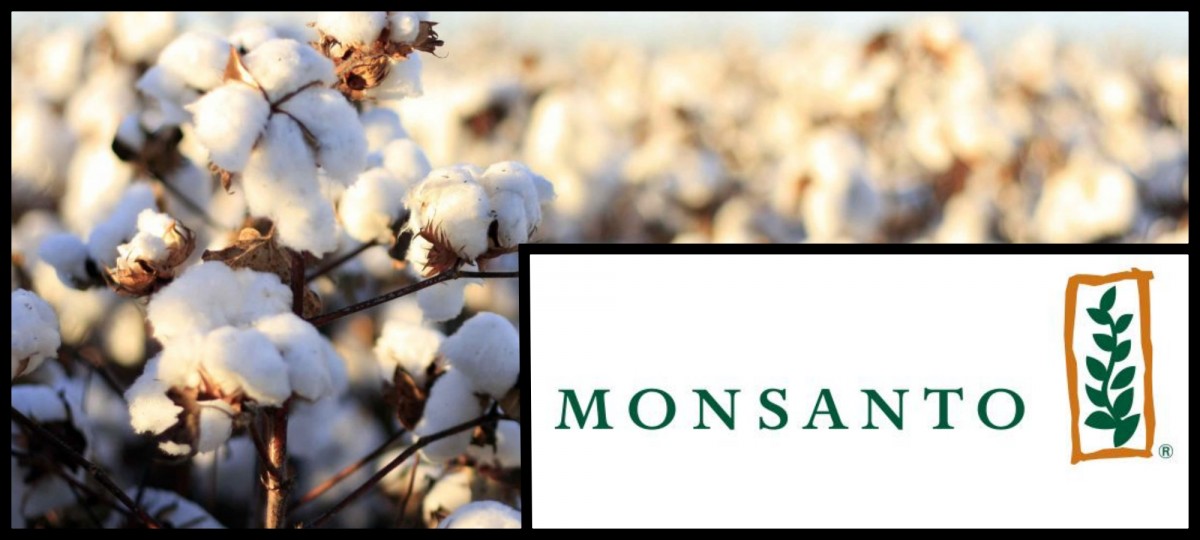Mumbai: In February 2018, the then Bharatiya Janata Party (BJP) government in Maharashtra set up a special investigation team (SIT) to probe companies that were allegedly selling or releasing unapproved herbicide-tolerant (HT) transgenic cotton, or Bt cotton, seeds in the state.
In particular, the state had accused several seed companies of surreptitiously releasing the seeds in several cotton-growing districts of Maharashtra, and parts of Gujarat, Telangana and Karnataka.
The resolution forming the SIT specifically mentioned seed giants like Mahyco Monsanto Biotech (India) Pvt. Ltd, Monsanto Holdings Pvt. Ltd. and Monsanto India Ltd., and the terms involved inquiry of the roles of these companies in the unauthorised production, storage and sale of HtBt cotton seeds with HT transgenic gene.

The probe had taken the SIT chief, also a special IG of police, Krishna Prakash, to many parts of the state and even to Gujarat and Telangana.The SIT, which was told to conclude its probe within a month, has submitted its report to the state government’s agricultural department only a few months ago. The Wire attempted to contact Prakash multiple times for a comment, but he was unavailable.
A few months prior to the formation of the SIT, in October 2017, the Prime Minister’s Office (PMO) had also set up the Field Inspection and Scientific Evaluation Committee (FISEC), under the Department of Biotechnology, to probe the proliferation of unlawful seeds.
In 2018, as both probes continued, the phone numbers of six senior officials from Mahyco Monsanto Biotech (India) Pvt. Lt and Monsanto India were selected as possible candidates for surveillance, investigations under the Pegasus Project have revealed.
A senior government official and scientist at the Department of Biotechnology who was involved with FISEC was also of interest to an unidentified Indian client of the NSO group, The Wire can confirm.
Their numbers are a part of a leaked database of over 50,000 numbers worldwide that were accessed by the French media non-profit Forbidden Stories and shared with an international media consortium of 17 organisations as part of what is called the Pegasus Project.
In pre-publication statements given to the consortium, the NSO Group has disputed the authenticity of this list, saying it has nothing to do with the company.As The Wire and other Pegasus Project media partners have noted, only a technical examination of a phone’s data can establish whether an attempt to hack or successful compromise by the spyware took place. The mere presence of a number on the list only indicates that the person was a possible candidate for surveillance.
The employees of Mahyco and Monsanto who were of interest to an India-focused client include senior officials, researchers and scientists working with the two companies.Research into genetically modified (GM) crops happens in a vitiated atmosphere in India. Scientific efforts are typically smothered by bureaucratic control while some prominent anti-GM activists have been accused of spreading pseudoscience.
In the last six years in particular, Maharashtra has seen an exponential rise in the usage of Bt seeds with the HT transgenic gene. The seeds, although illegal, are easily available and accessible to farmers.The BJP government and its ideological mentor RSS have advocated against the use of HTBt cotton seeds.Over the years, the companies have also been subjected to searches and raids in the godowns of their seed storage units.
A senior Monsanto official, who was engaging in talks with the government in 2018, came to be chosen as a potential Pegasus target in mid-2018. Speaking on the condition of anonymity, the official told The Wire that their job was to speak to different stakeholders, explaining the company’s work.
“Regardless of which party was in power, my work entailed participating in meetings and talking to different stakeholders of the government. While doing this, I would come across all kinds of people,” the person said.The senior official, who is no longer associated with Monsanto (as it was acquired by Bayer), said that the news of surveillance has both “amused and scared” them.The period chosen for surveillance overlaps with some crucial farmers’ agitations and the government’s pushback in the state.
Another official, who is no longer with the organisation, refused to respond to The Wire‘s calls and request for an interview.All researchers and officials presently employed in the company were also contacted and informed but they declined to shed light on why they may have been seen as possible candidates for snooping.
The senior official and scientist who was involved with FISEC said, “I am very surprised to learn that I could also have been under surveillance. I have no idea why. But the FISEC was mainly what I was working on at the time and this seeds business is complicated. Both the government and the companies play a dirty game.”
The report itself, which was submitted to the PMO, gave a clean chit to Mahyco. A Mint report from the time notes that the FISEC report concluded that “there has been no deliberate release” of the HTBt seeds into the market by Mahyco.
However, the complete report is yet to be made public. An official who works closely with the seeds industry and was also involved in the FISEC, but hasn’t seen the complete report, said that the report not being public is cause for speculation.“We still don’t know how they reached the conclusion that Mahyco is not providing the HTBt seeds. They have never bothered to explain,” the official said.
Several farmers’ organisations have defied the government by not only openly buying the seeds but also growing HTBt cotton, a third generation GMO developed by Bayer/Monsanto.The FISEC estimate states that over 15% of the total cotton production in major cotton-growing states is of the HTBt variety, which doesn’t yet have government approval. Experts say over 50 lakh packets of the HTBt variety (of 450 gm each) could be in circulation.Lalit Patil Bahale, executive president of the farmers’ organisation Shetkari Sanghatana, told The Wire that seeds have been made available through “safe channels” into the market.
His organisation, which has been at loggerheads with the state, said that in the absence of a government decision, many farmers’ organisations have taken a decision to sow the HTBt variant.Shetkari Sanghatana’s agitations led to two FIRs being filed in the state against farmers’ groups sowing the HTBt seeds as a mark of protest. The organisation criticised the police action, especially in the state, and called the government “anti-farmer”.
Both Mahyco and Monstanto (now Bayer) have maintained that they have not indulged in any illegal production and sales or release of HTBt seeds.
































